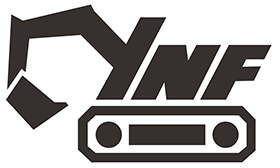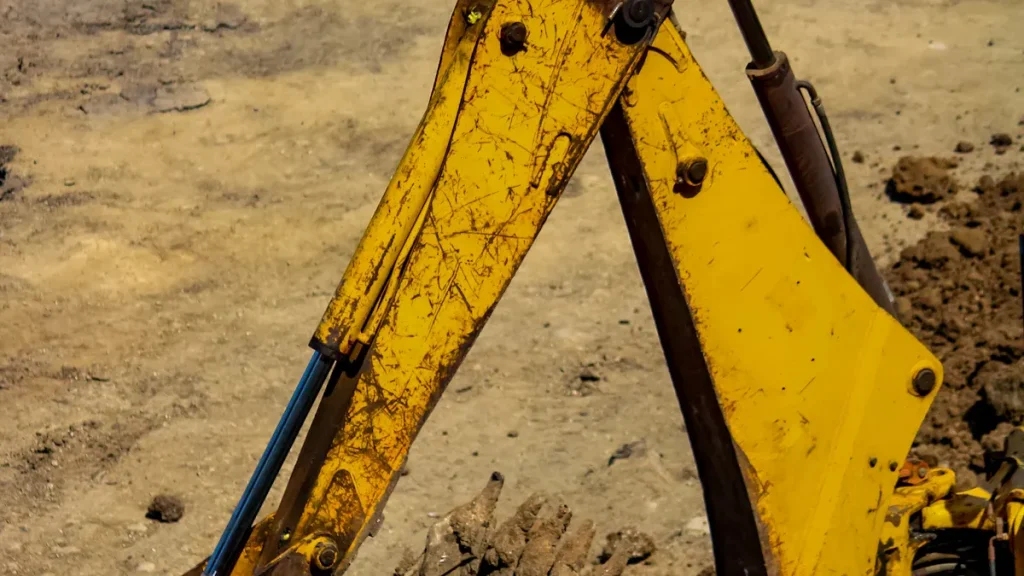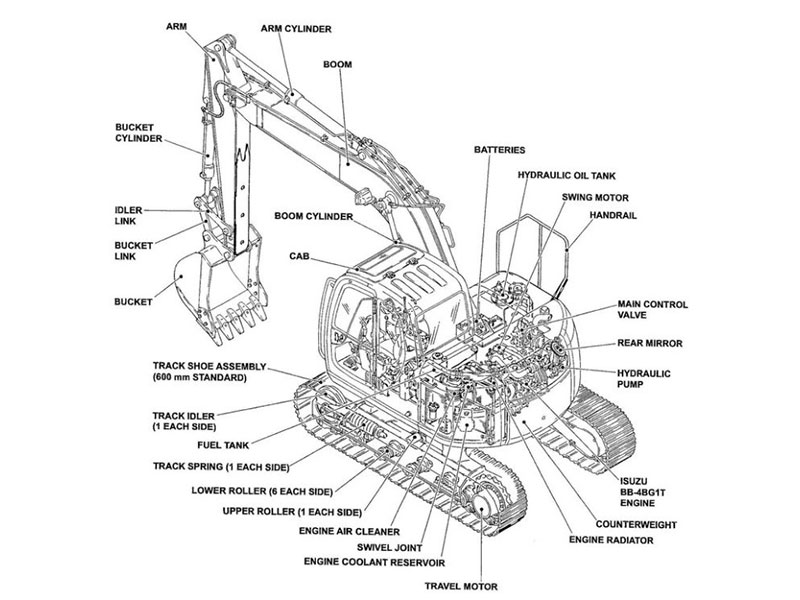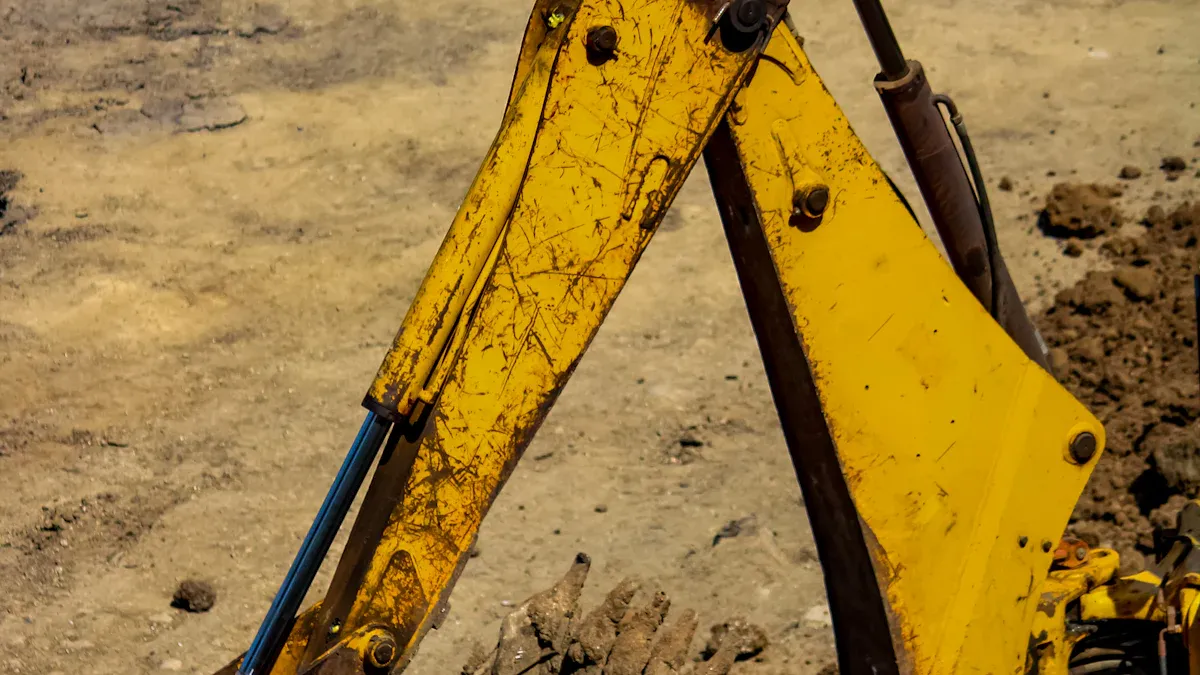
You want your excavator to work well every day. Picking the right excavator hydraulic parts keeps it strong. Always match parts to your excavator’s make, model, and serial number. This step makes sure the parts fit and work right. Good hydraulic parts help you stop breakdowns. Do not use parts without a warranty or good quality. Good suppliers give you a warranty and help if needed. You feel better when you trust good parts that fit. The right parts help your machine work better, keep your warranty, and protect your money.
Key Takeaways
-
Always match hydraulic parts to your excavator’s make, model, and serial number. This helps make sure the parts fit and work well.
-
Learn about the main hydraulic components and your system type. This helps you pick the right parts and avoid expensive mistakes.
-
Pick OEM parts when you can for better quality, warranty, and machine value. Be careful with aftermarket parts and always check if they fit.
-
Check for quality certifications and look closely at used or remanufactured parts. This helps you avoid fake or bad parts.
-
Choose suppliers with good reputations, clear warranties, and strong support. This protects your money and keeps your excavator working well.
Identify Excavator Hydraulic Parts
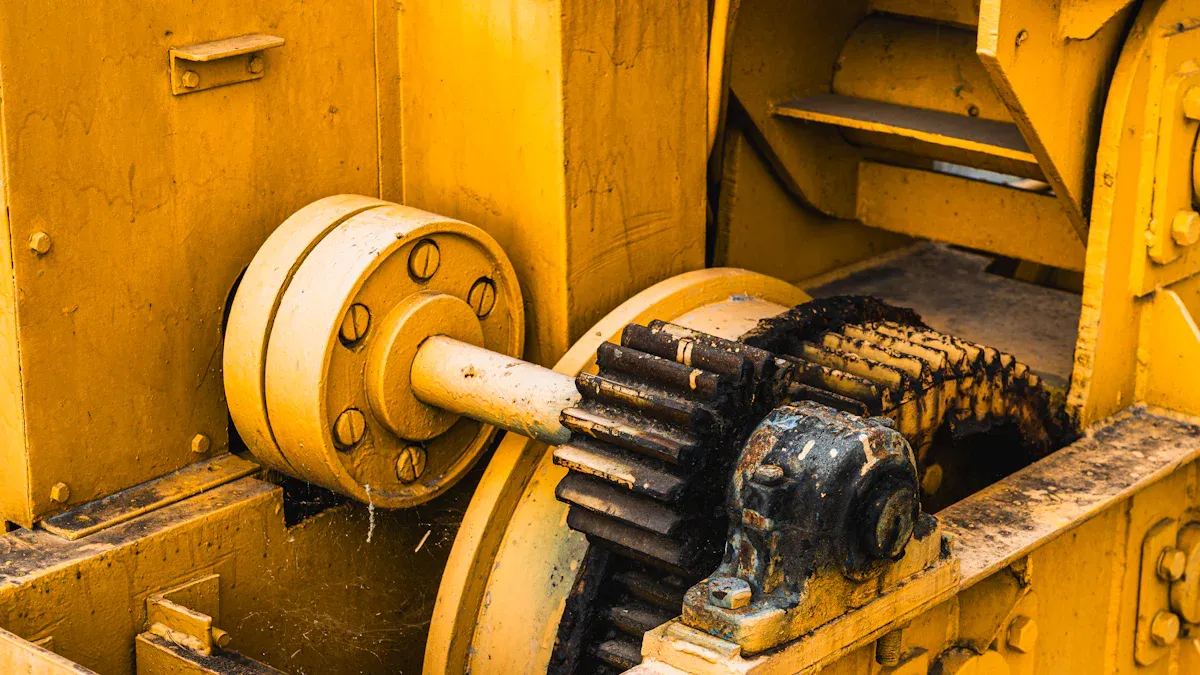
Find Make, Model, Serial Number
Start with the basics when you look for parts. Every excavator has a make, model, and serial number. These details help you pick the right excavator hydraulic parts. They also make sure the parts fit your machine. You can find this information on a metal plate or sticker. Look near the cab, on the frame, or inside the engine area.
-
The model number tells you about your excavator.
-
It has a machine type code, like PC or ZX, to show it is an excavator.
-
It has a tonnage code, like 200 or 215, to show the weight class.
-
It has a series or version number, like D or 8, to show the generation.
-
It may have special codes, like LC, H, or W, to give extra details.
-
These codes help you check if parts will fit. You avoid mistakes and save time and money. If you skip this step, you might get the wrong parts. This can cause delays and cost more.
Tip: Always check the serial number before you order. Even small changes in models can change which hydraulic components fit.
Know Main Hydraulic Components
Excavators need many hydraulic components to work well. You should know which parts are most important. You should also know how they work together. The main parts are hydraulic pumps, control valves, cylinders, hoses, seals, and filters. Each part does a special job.
|
Hydraulic Component |
Typical Lifespan (hours) |
Reasons for Replacement |
|---|---|---|
|
5,000 to 10,000 |
Wear, leaks, overheating, mechanical stress |
|
|
Hydraulic Hoses |
1,000 to 2,000 |
Cracks, bulges, leaks from pressure and wear |
|
Hydraulic Cylinders |
Up to 10,000 |
Slow movement, leaking seals, visible damage |
|
Seals |
2,000 to 5,000 |
Contamination, bad installation, temperature extremes |
|
Hydraulic Filters |
500 to 1,000 |
Blockage, fluid contamination, damage |
Hydraulic pumps move fluid through the system. Control valves send fluid to different parts, like the boom or bucket. Hydraulic cylinders use the fluid to make things move. Hoses carry the fluid. Seals stop leaks. Filters keep dirt out and stop damage. These parts wear out or get dirty over time. If you check them often, you can find problems early. This helps your excavator last longer.
You also need to know what kind of hydraulic system your excavator has. Some machines use hydro-static systems. These work best for tools that only move one way, like hammers. Other excavators use double-acting systems. These are for tools that move both ways, like thumbs or shears. Double-acting systems are more complex and need special valves.
If you choose the wrong hydraulic parts, you can hurt your excavator. You might also not be able to use some tools. Double hydraulic pumps let you use more than one function at once. You must match the pump, valves, and other parts to your system. Always check if your tool needs single or double-acting hydraulics before you buy excavator spare parts.
Note: Knowing your hydraulic system type helps you pick the right excavator hydraulic parts. The right parts mean better work and less downtime.
Check OEM Parts Compatibility
Match Part Numbers and Codes
You want your excavator to run smoothly. The best way to do this is by making sure every hydraulic part matches your machine. Start with your excavator’s serial number and the OEM parts codes. These numbers help you find the right hydraulic components for your machine. When you give these details to your supplier, they can find parts that fit your excavator perfectly.
-
Use your serial number and OEM codes to check for compatibility.
-
These numbers help you avoid fake excavator parts and counterfeits.
-
Matching parts by OEM codes lowers the risk of poor performance, leaks, or breakdowns.
-
Suppliers like SPARKLING MACHINERY focus on OEM compatibility checks. They test every part for fit and durability.
-
When you use the right codes, you protect your hydraulic system and make sure it lasts longer.
If you skip this step, you might get fake parts or components that do not fit. Using the wrong hydraulic hoses or other components can cause leaks, overheating, or even machine failure. Always double-check the codes before you buy. This step keeps your excavator safe and working hard.
Tip: Never trust a part that does not have a clear OEM code. Fake excavator parts often look real but do not fit or work right. Always ask your supplier for proof of compatibility.
OEM vs Aftermarket
You have two main choices when you buy hydraulic components: OEM parts or aftermarket parts. OEM parts come from the original manufacturer. They are made to fit your excavator exactly. These parts go through strict quality checks. You get a warranty and support from the maker. OEM parts help your excavator keep its value and work at its best.
Aftermarket parts come from other companies. Some aftermarket parts cost less and are easy to find. The quality of these components can change a lot. Some work as well as OEM parts, but others do not fit right or last as long. You might get a short warranty, or sometimes none at all. Using aftermarket parts can even void your machine’s warranty.
Here is a quick look at the differences:
|
Aspect |
OEM Parts |
Aftermarket Parts |
|---|---|---|
|
Reliability |
High, made for your excavator, tested for fit and quality |
Varies, some good, some bad, some do not fit |
|
Warranty Coverage |
Full warranty and support from the maker |
Warranty changes by brand, often less than OEM |
|
Compatibility |
Made to fit your machine, no guessing |
May fit, but sometimes not perfect |
|
Equipment Value |
Keeps your excavator’s value and warranty safe |
Can lower value, may void warranty |
You might want to save money with aftermarket parts. Just remember, fake excavator parts and counterfeits can sneak into the market. These fake parts do not pass quality checks. They can break fast, leak, or even damage other components. If you use fake parts, you risk more downtime and higher repair bills.
Note: Always ask your supplier about warranty and support. If you use aftermarket parts, check if they meet OEM standards. Never use components that do not fit or pass compatibility checks. Your excavator works best with the right hydraulic parts.
If you push your hydraulic system with the wrong parts, you can cause big problems. Non-matching hoses or components can lead to leaks, loss of power, or even safety risks. Always shut down your excavator if you see a leak or feel something is wrong. Protect your machine and yourself by using the right parts every time.
Assess Excavator Spare Parts Quality
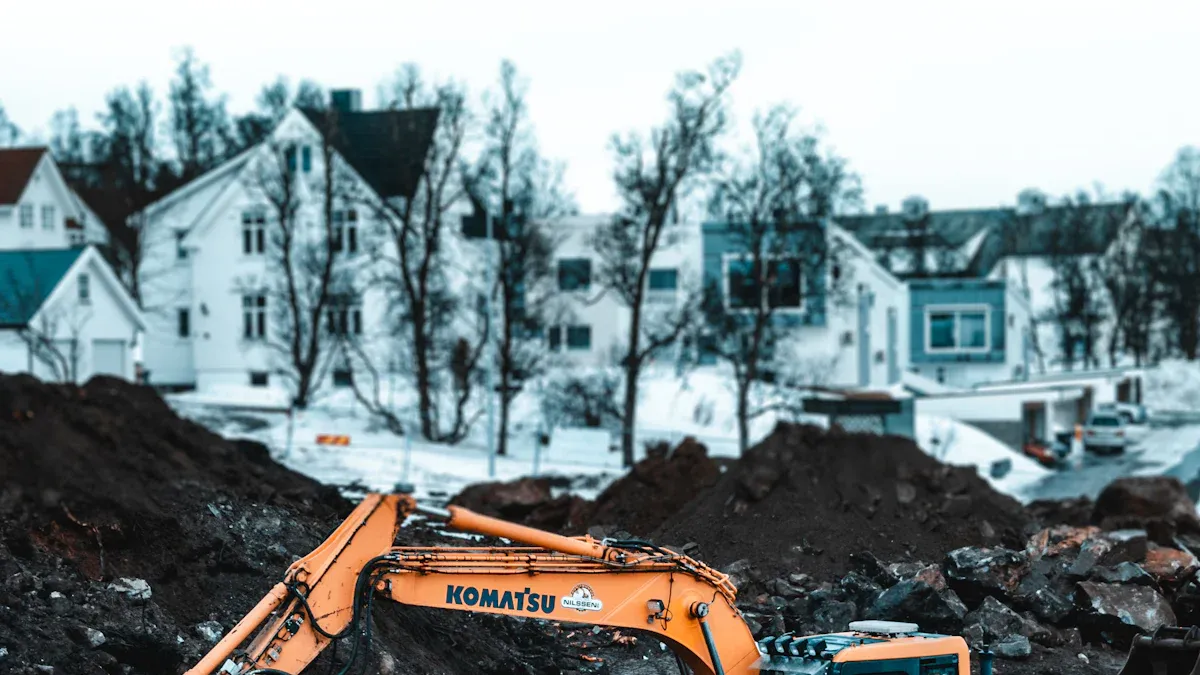
Inspect for Certification
When you buy excavator spare parts, always check for proof of quality. Certifications show the parts meet strict rules. These marks help you stay away from fake parts. They also make sure you get good components every time. Here is a quick guide to the most important certifications you should look for:
|
Certification |
Purpose and Relevance |
|---|---|
|
ISO 9001 |
Shows the maker uses a quality system. This means the excavator spare parts will work well and last. |
|
CE |
Needed for parts sold in Europe. It proves the parts are safe and follow health and environment rules. |
|
API |
Important for parts used in oil and gas. It means the hydraulic components can handle hard jobs and tough places. |
Quality-certified excavator spare parts help you feel safe. You know the parts will fit, last longer, and keep your excavator working well. Certified parts also come with warranties and support. This protects you from fake or bad components.
🛡️ Tip: Always check for certifications. They help you avoid fake parts and keep your excavator safe.
Evaluate Used or Remanufactured Parts
Sometimes you might want used or remanufactured excavator spare parts to save money. These parts can work well, but you must check their quality before you buy. Start by looking closely at the parts:
-
Look for leaks on the hydraulic pump, cylinders, and other parts.
-
Check the hydraulic fluid for dirt or grit.
-
Look at cylinders for rust, pits, or bends.
-
Test all pivot points to see if they move smoothly.
-
Run the excavator to see if the hydraulic system works right.
Here is how new, remanufactured, and used excavator spare parts compare:
|
Part Type |
Performance & Lifespan Characteristics |
Typical Use Cases |
Key Reasons & Considerations |
|---|---|---|---|
|
New Parts |
Best performance, longest life, perfect fit |
Critical hydraulic components |
Ensures safety and compatibility |
|
Remanufactured |
Almost like new, good performance, saves money |
Large structural components |
Certified rebuilds, eco-friendly |
|
Used/Refurbished |
Lower performance, shorter life |
Cosmetic or low-value parts |
Cost-driven, not for core components |
Good components help your excavator last longer. Bad or fake parts can cause breakdowns, leaks, and safety problems. Over 70% of failures come from bad spare parts. When you pick good quality, you get better performance, less downtime, and save money over time.
🚧 Note: Buying high-quality components means fewer repairs and better performance for your excavator.
Choose Excavator Parts Supplier
Check Reputation and Reviews
You want to trust your excavator parts supplier. Start by finding sellers with a good name. Good suppliers have lots of experience and happy customers. Read reviews from other buyers to see if they send parts on time. Reviews also show if the parts work well and last long. If many people say good things, you can trust the seller.
Trusted websites and marketplaces show real reviews. Look for suppliers with ISO 9001 or CE certifications. These prove the supplier cares about safety and quality. Ask for names of past buyers and talk to them. They will tell you if the supplier is honest and sends the right parts. Good suppliers will share this information with you.
Be careful if you see bad reviews. If people say the parts break often or support is slow, be careful. Complaints about bad warranties or poor help are warning signs. Good sellers fix problems fast and keep buyers happy.
📝 Tip: Always read reviews on trusted sites and marketplaces. If people always praise the supplier, you can trust them.
Warranties and Support
A good warranty helps you feel safe. Trusted suppliers give clear warranty rules for all excavator parts, even hydraulic parts. Some warranties last up to three years or 4,000 hours. A strong warranty means the supplier trusts their parts. It also saves you money on repairs.
Support is just as important as a warranty. Good sellers answer questions fast and offer help in 48 hours. Some even have local service teams. After-sales help lets you fix problems quickly and keep your excavator working. Expert support can make your hydraulic cylinders last longer and stop breakdowns. Good suppliers care about support because they want you to buy from them again.
When you buy from trusted sellers or official dealers, always ask about warranty and support. Good sellers will explain their rules and what is covered. Good support and a strong warranty mean you can trust your excavator parts supplier for a long time.
Picking the right excavator hydraulic parts helps your machine work well. You can use these easy steps:
-
Look in your excavator manual for the right parts and numbers.
-
Compare OEM and aftermarket choices for quality and warranty.
-
Choose good hydraulic components for better work and safety.
-
Read what customers say and ask experts about the supplier.
-
Always look for certifications and a strong warranty.
The right hydraulic components help your machine work better and stay safe. They also help your excavator last longer. Checking your process often helps you avoid mistakes and keeps your warranty safe.
FAQ
How do I know if a hydraulic part fits my excavator?
Check your excavator’s make, model, and serial number. Match these with the part’s OEM code. If you feel unsure, ask your supplier for help. They can confirm the right fit for your machine.
Can I mix OEM and aftermarket hydraulic parts?
You can, but always check compatibility first. Some aftermarket parts work well with OEM parts. Others might not fit or last as long. Ask your supplier if you have any doubts.
What signs show a hydraulic part needs replacing?
Look for leaks, slow movement, or strange noises. If your excavator loses power or the hydraulic fluid looks dirty, you might need new parts. Regular checks help you spot problems early.
Why do certifications matter for hydraulic parts?
Certifications like ISO 9001 or CE show the part meets safety and quality standards. You get peace of mind knowing the part will last and work well. Always look for these marks before you buy.
